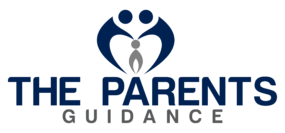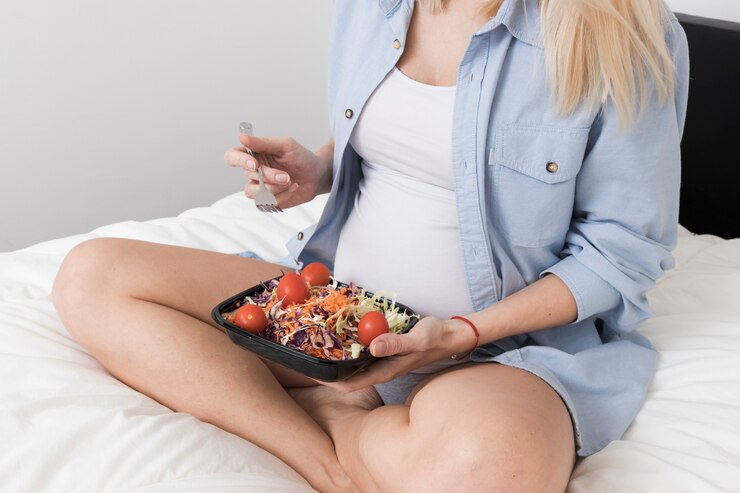Pregnancy is a beautiful journey filled with excitement, anticipation, and, of course, a whole lot of food cravings! However, amidst the indulgence, it’s crucial to remember that not all foods are created equal, especially when carrying a tiny human onboard. Certain food items, while seemingly harmless, can pose potential risks to both you and your developing baby.
This blog aims to equip you with the knowledge of harmful foods to avoid during pregnancy, empowering you to make informed dietary choices for a healthy journey. Remember, this information is for general guidance only, and consulting your healthcare provider remains paramount for personalized advice specific to your pregnancy needs.
Top Culprits: Raw and Undercooked Products
- Raw Meat, Poultry, and Fish: These harbor harmful bacteria like Salmonella and E. coli, which can cause food poisoning and lead to complications like miscarriage or premature birth. Ensure all meat, poultry, and fish are cooked thoroughly until steaming hot (internal temperature reaching 165°F for poultry and 145°F for meat and fish).
- Unpasteurized Milk and Dairy Products: These lack the pasteurization process that eliminates harmful bacteria like Listeria, which can cause listeriosis, a serious infection for both mother and baby. Opt for pasteurized milk, cheese, yogurt, and ice cream to be safe.
- Raw Eggs: Raw eggs can carry Salmonella, increasing the risk of food poisoning. Avoid homemade dishes like mayonnaise, hollandaise sauce, or Caesar salad dressing unless you’re sure the eggs are pasteurized.
Seafood: Friend or Foe?
While seafood is a valuable source of omega-3 fatty acids crucial for your baby’s development, certain types pose risks:
- High-Mercury Fish: Shark, swordfish, king mackerel, and tilefish contain high levels of mercury, which can harm your baby’s nervous system development. Limit these to no more than once a month or avoid them altogether.
- Raw Shellfish: Oysters, clams, and mussels can harbor bacteria and viruses. Stick to cooked shellfish options to minimize risk.
Other Foods to Be Wary Of
- Deli Meats and Hot Dogs: These can harbor Listeria bacteria. Unless reheated until steaming hot, opt for safer alternatives like cooked chicken or turkey breast.
- Unwashed Fruits and Vegetables: Thoroughly wash all fruits and vegetables before consuming to eliminate potential pesticide residues and harmful bacteria.
- Organ Meats: While rich in nutrients, organ meats like liver can be high in vitamin A, which can be harmful to your baby in excess. Limit your intake or consult your healthcare provider for guidance.
- Sprouted Seeds and Raw Sprouts: These can harbor bacteria like E. coli. Opt for cooked sprouts or choose seeds instead.
- Excessive Caffeine: Limit your daily caffeine intake to 200mg (about one cup of coffee) to avoid potential risks like low birth weight or miscarriage.
- Alcohol: There is no “safe” amount of alcohol during pregnancy. Abstaining completely is the best way to protect your baby’s health.
Beyond the “Don’ts”: Embracing a Balanced Diet
While understanding harmful foods is crucial, remember that pregnancy is not about restrictions but about making informed choices. Focus on incorporating a variety of nutrient-rich foods from all food groups:
- Fruits and Vegetables: Packed with vitamins, minerals, and fiber, these are essential for both you and your baby’s health.
- Whole Grains: Provide sustained energy and essential nutrients like fiber and B vitamins.
- Lean Protein Sources: Choose lean meats, fish (within safe limits), poultry, beans, and lentils for building and repairing tissues.
- Healthy Fats: Include healthy fats from sources like avocado, nuts, and seeds for energy and nutrient absorption.
Remember
- Consult your healthcare provider: Discuss your individual needs and any concerns you may have about specific foods.
- Read labels carefully: Be mindful of ingredients, especially hidden sources of unpasteurized dairy or added sugars.
- Practice safe food handling: Wash hands thoroughly, cook food to proper temperatures, and refrigerate leftovers promptly.
- Listen to your body: Pay attention to how different foods make you feel and adjust your diet accordingly.
By making informed choices and focusing on a balanced diet, you can ensure a healthy and enjoyable pregnancy journey for both you and your developing baby. Remember, knowledge is power, and this information empowers you to make the best choices for your little one’s well-being.
Additional:

